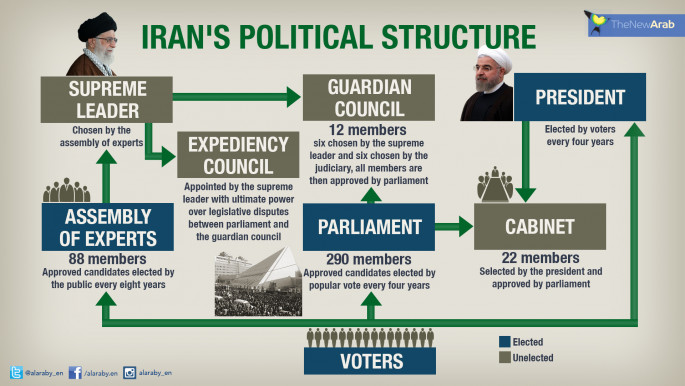Battle of the bands: Iran's conservatives restrict live music
The latest battle between moderates and conservatives in Iran is being played out in the concert halls of Tehran.
Authorities have introduced new restrictions to live music in the capital in a move moderates have criticised as a capitulation by local authorities to the growing strength of religious conservatives.
Although live music will continue, police have the power to record all gigs, while the culture ministry and local government will be responsible for the content of the shows and the behaviour of the audience.
Conservatives appear to be growing in confidence, and keen to throw their weight around.
It comes as one of Iran's best known classical singers Shahram Nazeri came close to cancelling a concert with his son Hafez in the religious city of Yazd last week.
"A group of religious people wanted to cancel the concert. But Shahram and Hafez Nazeri decided to hold it anyway," a representative for the duo told AFP.
When the show happened, protesters tried to disrupt the concert.
"Loudspeakers could be heard outside the venue reciting prayers during the concert."
Clampdown
Live music has already been banned in Mashhad despite the fact that no shows have taken place in Iran's second city for 11 years.
However, the city is an important Shia pilgrimage site and the decision is symbolic. The city's prayer leader has attacked the "debauchery" of concert-goers elsewhere and called for a ban in Mashhad. Others wonder if other cities will follow suit.
A letter signed by 5,000 people in Iran's music industry was published in the reformist press describing the ban on concerts in Mashhad as a "catastrophe that sacrifices music today, and the rest of the culture and the reputation of this country tomorrow".
 |
Culture Minister Ali Jannati's decision to implement the ban led to criticism from President Hassan Rouhani who is battling conservative clerics and politicians in the country.
"As far as I am concerned, no minister should give in to any pressure," Rouhani said this week.
"We have the Islamic parliament. If a law is going to be adopted, lawmakers will pass it."
Since Iran agreed to a deal last year with global powers - including the US - to end sanctions and curb the country's nuclear programme, Rouhani has come under a vigorous attack by conservatives. They might be worried that the end to sanctions and better relations with the US could roll back the "Islamic reforms" made by politicians since the 1979 revolution.
Regime supporters have come out in force, not only attacking Rouhani - and other supposed moderates - but also being more vocally critical of the US which appears keen to patch up differences with Iran, in part due due to the threat of the Islamic State group.
Rouhani is seeking re-election in less than a year. He has pushed for greater social freedoms and his supporters largely control the government, but conservatives still control the apparatus of power and try to block lawmakers' reforms.
Earlier this week, it was announced that 450 Iranians were detained for "immoral" social media use. There has been a clampdown on describe women posing for cameras without hijabs and posting on the images on social media.
Meanwhile, dozens of young Iranians have been arrested in raids on house parties.
A sign of this rightwards shift is probably best illustrated with the possible return of former President Mahmoud Ahmadinejad to politics.
He was largely blamed and hounded for dividing the country after violently crushing protests in the country, and driving his country close to economic ruin.
But with conservatives gaining the upper hand - in part due to the Republican Guard's increasingly active role outside the country, and increasing its influence in Syria, Lebanon, Iraq and Afghanistan.
With conservatives still in the driving seat the prospect of Ahmadinejad being given a leading position in government is not as unimaginable as it once seemed.
Agencies contributed to this story.





 Follow the Middle East's top stories in English at The New Arab on Google News
Follow the Middle East's top stories in English at The New Arab on Google News


